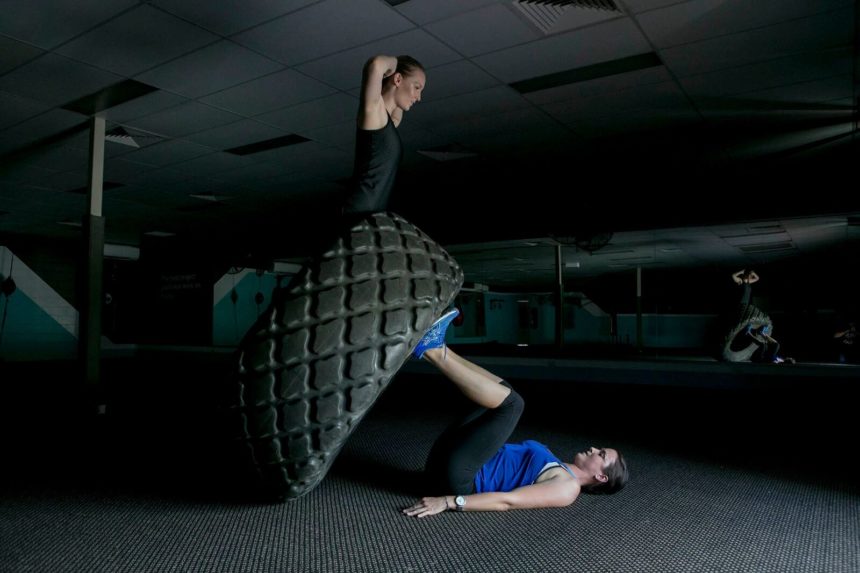Why is it easier for some people to build muscle faster than others? Are certain people predisposed to being naturally stronger, and is muscle memory a real phenomenon? Let’s explore the truth behind how and why muscles hypertrophy.
If you’ve been on holidays for a while or just gotten slack with your training regime, you might notice a loss in muscle and strength. All those months spent downing protein shakes, eating clean and training have all gone to waste. Wrong. We have some good news – your “gains” will return and they will return faster than you think thanks to muscle memory.
Research has shown that re-training your muscles is easier the second time round. Like riding a bike, it’s something your body never really forgets. So, stop making excuses to go to the gym. Come see us here at Active Life Fitness Everton Hills and we will help kick-start your fitness goals.
How does muscle memory work?
When you build muscle for the first time, you are literally creating new nuclei within your muscle cells (#newbiegains). The stronger you get, the more nuclei you possess and the faster your body is able to synthesise protein (Lane, 2015). Unfortunately, this process of creating new nuclei becomes harder the older we get and hence why strength training is so important regardless of age or physique.
Now for the good news. Once you’ve put in the hard yards to create these muscle cells, they are yours for the keeping. A study by researchers from the University of Oslo showed that muscle nuclei prevailed for up to 3 months of inactivity (Johnstone, 2017). Now that is one long holiday! This is why the guy featuring the “dad bod”, who hasn’t picked a barbell in months, might waltz in and out squat your newbie gains. What appears as natural strength is just a jogging of the muscle’s memory.
The other type of muscle memory has nothing to do with our bodies and everything to do with our brain. When we repeatedly perform activities, we are forming pathways in our brain that solidify into new motor skills (Yeager, 2010). The same applies with weight training; your body knows the mechanics of a squat or a lunge and will wake your brain up to these triggers.
Don’t be disheartened if you’ve lost strength. It might just mean that your muscle cells have shrunk in size), but the number of nuclei you possess is still the same. Returning to your normal training programme will quickly result in a rapid regeneration of muscle size and strength.
Why do we need strong muscles?
Do not underestimate the necessity for strong muscles; they do more than just give you an impressive physique (#curlsforthegirls). In fact, we need our muscles for everyday tasks like climbing the stairs or carrying in the groceries. As we age they also become essential for injury prevention and maintaining bone density. The rate of muscle “atrophy” or muscle mass lost is 5% for every year after 30 (White, 2016). Moreover, the risk of osteoporosis is considerably higher for women, making it all the more urgent for ladies to be lifting weights. The silver lining is that it is never too late to start strength training.
How often should I strength train?
Whilst yes, it is difficult to build new muscle, it is relatively easier to maintain current muscle and prevent further degeneration. Just three, 30-minute strength-training sessions a week can help regulate blood pressure, minimise muscle loss and minimise the risk of cardiovascular conditions (White, 2016).
PT’s Tip: When weight training, select a weight you can perform around 8 – 12 repetitions. This will help maximise results and ensure your muscles are adequately challenged.
Take home message?
Most of us are guilty of adopting an “all or nothing” approach to working out. We either train like crazy for a few weeks and or do absolutely nothing for the next five. Let me remind you that being consistent is better than being extreme. After all, it only takes a few short sessions a week to maintain strength and keep healthy. Nevertheless, do not lose hope if you’ve been out of the game for a while. Muscle memory is definitely a real thing. Just like an old friend from high school, everything will seem familiar, your strength will return and it will be as if no time had never past.
References
AIHW. (2014, September). Estimating the prevalence of osteoporosis in Australia. Retrieved from AIHW
Johnstone, A. (2017, December 14). The amazing phenomenon of muscle memory. Retrieved from Oxford University
Lane, E. (2015, June 24). WHAT IS MUSCLE MEMORY? Retrieved from Men’s Health:
White, C. (2016, May 27). Strength training benefits for ageing bodies (and how to go about it). Retrieved from ABC News
Yeager, S. (2010, November 10). The Secret to Being Fit for Life: Muscle Memory. Retrieved from Women’s Health




